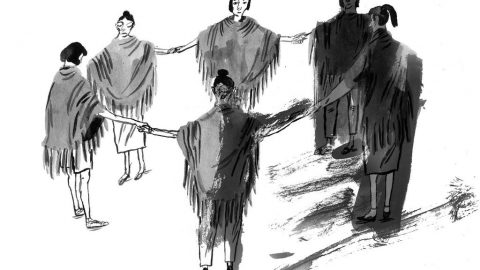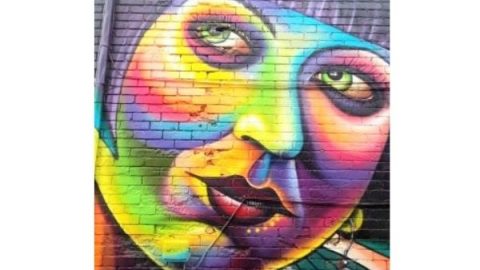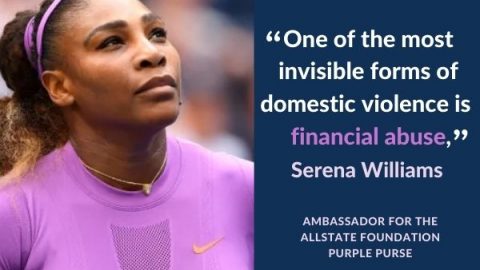Silenced and Stripped: Confronting the Racial Wealth Gap and Gender-Based Violence Against Black Women in Canada
As we transition from Black History Month to Women’s History Month, it is essential to acknowledge that while February is dedicated to honouring and recognizing the history and experiences of Black people in Canada, the impact of historical events such as slavery and colonialism continues to affect the socio-economic disparities that Black people face today. Unfortunately, these disparities also heighten the risk of gender-based violence against Black women.
Overall, women of all social identities are more likely to experience violence from intimate or non-intimate partners due to assigned roles of behaviour within society based on ones ascribed or perceived gender. Women who lie at the intersection of multiple identities are more likely to experience gender-based violence due to the increase in and intersection of risk factors to experiencing violence. For Black women, the existence and intersection of: stereotypical and racist images of black women, colonial violence, poverty, immigration status, and systemic racism determine the forms of violence that one might experience.
A Statistics Canada report in 2021 highlighted that 42% of Black women disclosed having experienced intimate partner violence or domestic violence. However, due to the fact that Black women face racism in the criminal system, many fear reporting experiences of intimate partner violence to the police due violence and harm often done toward Black people and men. Furthermore, in instances where reports of abuse were made to police, the survivors were the ones charged with uttering threats, assault, or assault with a weapon and the perpetrator was not charged.
Economic abuse is a form of gendered violence against women as a way to control or exploit another person, and often occurs in conjunction with other forms of abuse such as physical, emotional, or sexual. Economic abuse is not limited to financial resources but also encompasses the range of behaviours used to control and exploit the others employment, education, health, and housing. The perpetrator may use tactics such as preventing or refusing to allow the women to attend school or work, damaging property of the individual, pursuing expensive legal proceedings for divorce or child custody, or limiting the amount of food or clothing of the individual. For women who experience violence from intimate partners, leaving an abusive relationship becomes difficult if one cannot financially afford to do so. Survivors of abuse are likely to experience long term economic consequences even after leaving the relationship, such as taking on debt due to losing support of a second income, poor credit, housing instability due to being forced out of the home, and diminished ability to work related to trauma or disability.

The population of people in Canada who identify as Black continues to face economic injustices and income inequality, and Black women face the greatest impact. A report from Statistics Canada highlights data that consistently from 2000 to 2015, non-Black men earned significantly higher wages, compared to Black men, and even more than non-Black women, with Black women earning the least comparatively. Furthermore, the 2016 Statistics Canada census shows that Black Canadians continue to earn less income compared to non-racialized Canadians, and this held true both for new immigrants and third-generation Canadians.
The accumulation of wealth and income is impacted by a multitude of factors, including education, employment, and housing. Unfortunately, these factors have been used to perpetuate anti-Black racism in Canada and cause the greatest impact to women due to the intersection between race and gender. By addressing these systemic barriers and working towards creating equitable access to education, employment, and housing, we can begin to dismantle the structures that uphold systemic racism and work towards a more just and equal society.
Education
Education remains intimately tied to wealth and economic status, with higher education linked to increase in income. However, Black high school students are more likely to be placed into special education or applied level programs, and least likely to enroll in post-secondary education compared to other-racialized and White students. Furthermore, Black students face racism in the form of over-penalization as they are more likely to be suspended from school compared to White students. For those that pursue higher education, it doesn’t always translate to an increase in income as it does for the general population. The proportion of Black women with postsecondary education has increased over time from 2001 to 2016, however, the unemployment rate for Black people with a postsecondary education was reported as 9.2% in 2016, compared to 5.3% for those in the rest of the population. Thus, anti-Black racism within schools prevents individuals from attaining higher education and ultimately earning higher wages, and even when individuals do attain higher education, it does not translate to equal participation in the workforce.
Employment
Black men and women typically report lower levels of employment compared to White Canadians. Black women and girls consistently have higher rates of poverty compared to non-racialized and other- racialized populations (2016 Canadian census, as reported in Monitor magazine). Interestingly, Black men and women have higher labour force participation rates compared to non-racialized and non-Black identifying persons. However, unemployment rates for Black women are almost double that of non-racialized women, and they earn considerably less than non-racialized men. Both Black men and women are overrepresented in jobs for which they are overqualified for compared to white men and women. The data speaks volumes about the systemic barriers that Black women face in earning higher incomes and escaping poverty. It is clear that Black people are often relegated to underpaying jobs that prevent them from achieving financial stability, ultimately leading to a wider racial wealth gap. By acknowledging and addressing this systemic oppression, we can work towards creating a more just and equitable society for all.
Housing
Adequate housing is a human right enshrined in international human rights law. Failing to recognise, protect, and fulfill the Right to Adequate Housing results in the violation of a plethora of fundamental rights including the Right to Work, Education, Health, and Security. In Canada, affordable housing is defined as payments that comprise 30% or less of one’s income, and that is not crowded or in need of major repairs. In data from the 2016 census, 20.6% of Black Canadians reported living in housing that is below standard, compared to 7.7% of White Canadians. According to the Canadian Mortgage and Housing Corporation, nearly a quarter of Black Canadians are in core housing need, with 80% paying more than the standard 30% of their income towards housing.
Home ownership is also an indicator of wealth as the value of real estate accumulates year over year and adds to one’s assets. In Canada, Black people who live in a private dwelling owned by a member of their household was reported as only 48% in the 2018 Canadian Housing Survey, compared to 73% of the total population. Home ownership allows for a form of savings, and real estate can be passed down generationally, thus generating intergenerational wealth. Anti-Black racism plays a role in low home ownership among Black Canadians as financial institutions are more likely to reject Black applicants for a mortgage compared to white applicants, even when they look the same on paper. Given the lack of affordable housing, the rising costs of rent or mortgages, and the inaccessibility of home ownership, combined with shelters being at capacity, women who are facing violence in the home are more likely to stay in abusive relationships due to there being very few options to securing alternative living spaces.
Addressing the Racial Wealth Gap
The Canadian Center for Women’s Empowerment (CCFWE) recognizes that data on wealth accumulation and exclusion based on race should be available in Canada to fully understand wealth inequality. Current data analysis based solely on annual income from wealth is inadequate. CCFWE advocates for increasing awareness of economic abuse, promoting financial literacy for women and Black women, and collecting disaggregated data to understand the intersecting barriers that Black women face.
To address the racial wealth gap, CCFWE recommends implementing policies that address access to quality education and job training programs, discrimination in healthcare, over-criminalization of Black people and women, and pay equity. By taking an intersectional lens to addressing the barriers that exist at each level, we can work towards achieving economic security for all.
Written by:
Candace Gomes, Registered Social Worker
Social Justice Writer at CCFWE









